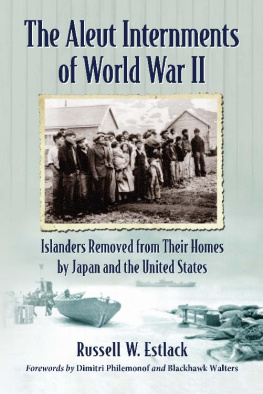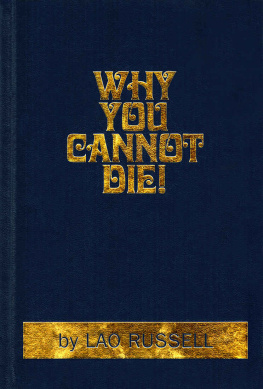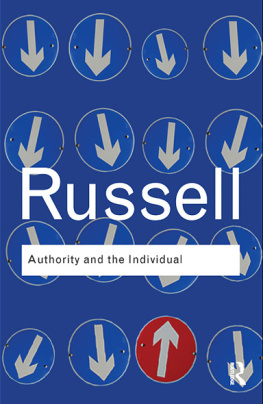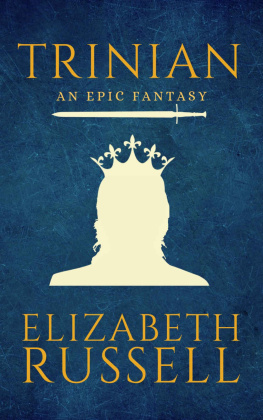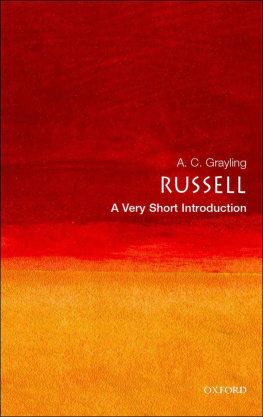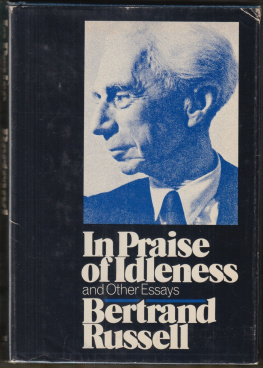Russell W. Estlack - The Aleut Internments of World War II: Islanders Removed from Their Homes
Here you can read online Russell W. Estlack - The Aleut Internments of World War II: Islanders Removed from Their Homes full text of the book (entire story) in english for free. Download pdf and epub, get meaning, cover and reviews about this ebook. year: 2014, publisher: McFarland & Company, Inc., Publishers, genre: Home and family. Description of the work, (preface) as well as reviews are available. Best literature library LitArk.com created for fans of good reading and offers a wide selection of genres:
Romance novel
Science fiction
Adventure
Detective
Science
History
Home and family
Prose
Art
Politics
Computer
Non-fiction
Religion
Business
Children
Humor
Choose a favorite category and find really read worthwhile books. Enjoy immersion in the world of imagination, feel the emotions of the characters or learn something new for yourself, make an fascinating discovery.
- Book:The Aleut Internments of World War II: Islanders Removed from Their Homes
- Author:
- Publisher:McFarland & Company, Inc., Publishers
- Genre:
- Year:2014
- Rating:3 / 5
- Favourites:Add to favourites
- Your mark:
- 60
- 1
- 2
- 3
- 4
- 5
The Aleut Internments of World War II: Islanders Removed from Their Homes: summary, description and annotation
We offer to read an annotation, description, summary or preface (depends on what the author of the book "The Aleut Internments of World War II: Islanders Removed from Their Homes" wrote himself). If you haven't found the necessary information about the book — write in the comments, we will try to find it.
The Aleut Internments of World War II: Islanders Removed from Their Homes — read online for free the complete book (whole text) full work
Below is the text of the book, divided by pages. System saving the place of the last page read, allows you to conveniently read the book "The Aleut Internments of World War II: Islanders Removed from Their Homes" online for free, without having to search again every time where you left off. Put a bookmark, and you can go to the page where you finished reading at any time.
Font size:
Interval:
Bookmark:
Forewords by Dimitri Philemonof and Blackhawk Walters

McFarland & Company, Inc., Publishers
Jefferson, North Carolina
LIBRARY OF CONGRESS CATALOGUING DATA ARE AVAILABLE
BRITISH LIBRARY CATALOGUING DATA ARE AVAILABLE
e-ISBN: 978-1-4766-0587-6
2014 Russell W. Estlack. All rights reserved
No part of this book may be reproduced or transmitted in any form or by any means, electronic or mechanical, including photocopying or recording, or by any information storage and retrieval system, without permission in writing from the publisher.
On the cover: top Attuans await transport to an internment camp in Japan, June 1942. Chief Mike Hodikoff is in the suit; bottom Aleuts from St. George and St. Paul sail aboard the USAT Delarof to their new home in southeastern Alaska, August 1942 (both National Archives)
McFarland & Company, Inc., Publishers
Box 611, Jefferson, North Carolina 28640
www.mcfarlandpub.com
To the loving memory of my parents, Elmer and Ethel Estlack,
who through their examples taught me
about love, life and rules to live by.
They are gone, but never forgotten.
To my wife, Luisa, who believed I could write this book.
Her loving support makes life worthwhile.
To my wonderful grandchildren,
Joseph W. Peckumn, Aubrey Rose Peckumn, Amanda and Samantha Estlack,
and to my children, Allison Peckumn and Russell Estlack, Jr.
May they always enjoy the freedom and blessings of America,
the Land of the Free and the Home of the Brave.
This book is the result of the collective efforts of a number of people
who gave me the freedom to tell the story of the Aleut people.
I am especially indebted to the Aleutian/Pribilof Island Association
for their generous and untiring efforts
to assist me with my research
and to the president and CEO of the APIA, Dimitri Philemonof,
who believed in this project from its inception.
My thanks to my good friend and fellow author,
Douglas Brough of Barrow-in-Furness, Cumbria, England.
His suggestions were invaluable
in the preparation of this manuscript.
Without their help and support,
this book would never have been written.
by Dimitri Philemonof
Russell W. Estlacks historic account in this book is a story close to my heart in that it speaks of my family, my friends, and above all my Aleut people whom I humbly serve as president and CEO of the Aleutian Pribilof Islands Association Inc. (APIA) in Anchorage, Alaska.
After Russell wrote his Pulitzer Prizenominated book Shattered Lives, Shattered Dreams, he learned about a little-known factthat of the Aleut internment in southeastern Alaska and Japan during World War II. He called APIA to gather more information on the subject in order to write another book that he felt, and I agree, needed to be written.
Russell enthusiastically deciphered hundreds of pages about World War II reparations and documentation stored in APIAs Cultural Heritage Library and Archives and consulted our CD, The Relocation and Internment of the Aleuts During World War II, and DVD, The Untold War Story, which received an Emmy nomination in 1992 and a Bronze Telly Award in 1994.
Russells manuscript accurately describes the horrific experiences Aleuts suffered from the federal government and others. Accounts during World War II tell of being herded off their beloved Aleutian Islands to spend years living in abandoned buildings in various locations in southeastern Alaska, arriving with few of their personal belongings. They suffered many hardships, such as rebuilding dilapidated buildings, hunger, ill health and the deaths of family members. They returned to their burned-out or ransacked homes to discover the pilfering of precious items by military personnel. Accounts tell of the suffering and death of half the population of Attuan Aleuts while interned in Japan; by order of the federal government, the survivors never returned to their beloved island. This book also describes the St. Paul fur seal industryhow the enslaved men were ordered to slaughter millions of fur seals to generate money for the federal government, including restitution settlement to the Aleut people by the United States government.
Very little is known about the Aleut people of the Aleutian Islands. This book is only a chapter capturing the many atrocities my beloved Aleut people have sufferedstarting with the first discovery of Alaska by Russians in 1741 to further sufferings endured at the hands of the Americans after the purchase of Alaska in 1867.
Many thanks to Russell for his insight and energy to document this story and enlighten the public so that others may know. This book is a must read!
I will say fortitude is a good word in describing the Aleut people who throughout history have endured all the horrific impositions of suppression, oppression and almost annihilation from this earth.
It is said, if you never ask, you are never told. Therefore, I, along with the other Aleut people, thank you, Russell, for asking. Ancient Aleut oral stories always end with It is said.
Dimitri Philemonof is president and CEO of the Aleutian Pribilof Islands Association and a representative for the St. George Village Corporation, the Alaskan Housing Authority, the Alaska Federation of Natives, and the Aleut Corporation. He was instrumental in helping pass World War II reparations and establish the Russian Orthodox Church Restoration Trust Fund.
by Blackhawk Walters
I remember well my first meeting with Russell and the beginning of our friendship. It was ten years ago after the publication of my first book. We both attended a Southern Utah Book Writers Convention. I listened to the naysayers about how hard it was to get published. I raised my hand and said, If you have a story to tell, then write it and publish it yourself. If the story is good then it will sell. I did this myself, sold the initial printing of one thousand copies in one day, and have republished twice more, making $30,000. If you are interested, see me after the meeting and Ill explain more. Of fifty people, one was serious: Russell Estlack. When he approached me, he asked questions, listened, took notes and called me several times on his journey to become a writer. Since that day, the student has surpassed the teacher.
Russells book is a story close to my heart. My people were illegally taken from our homes by the Army of the United States and forced to march across the wilderness. The Creek, Choctaw, Chickasaw, Seminoles, and Cherokee were forcibly removed from their ancestral tribal homes. Thousands of Native Americans died on this forced march, which has become known as the Trail of Tears. A similar incident happened to the indigenous Aleuts of Alaska. Because the United States military did not want Americans to know the Japanese had invaded Alaska, a news blackout was imposed.
The history books, colleges, and universities have ignored this incident. Thanks to Russells research from U.S. government documents, Japanese soldiers, and personal stories of the Aleuts themselves, this story lives on. It is hard to believe that a tragedy such as this has not become a part of history.
Over eight hundred Aleuts who were American citizens were held prisoner by the United States military, supposedly to protect them from the Japanese. They lost their homes, which also were looted by service personnel and civilians; they lost their works of art, tribal crafts, and religious icons. Conditions were so horrendous that ten percent of the Aleuts perished under the supposed protection of the United States military. This was truly a racial incident. Authorities ordered the removal of anyone with one-eighth Indian blood; all others were allowed to remain in the Aleutians. Thanks to Russell, this story will survive and hopefully become a part of our history.
Font size:
Interval:
Bookmark:
Similar books «The Aleut Internments of World War II: Islanders Removed from Their Homes»
Look at similar books to The Aleut Internments of World War II: Islanders Removed from Their Homes. We have selected literature similar in name and meaning in the hope of providing readers with more options to find new, interesting, not yet read works.
Discussion, reviews of the book The Aleut Internments of World War II: Islanders Removed from Their Homes and just readers' own opinions. Leave your comments, write what you think about the work, its meaning or the main characters. Specify what exactly you liked and what you didn't like, and why you think so.

